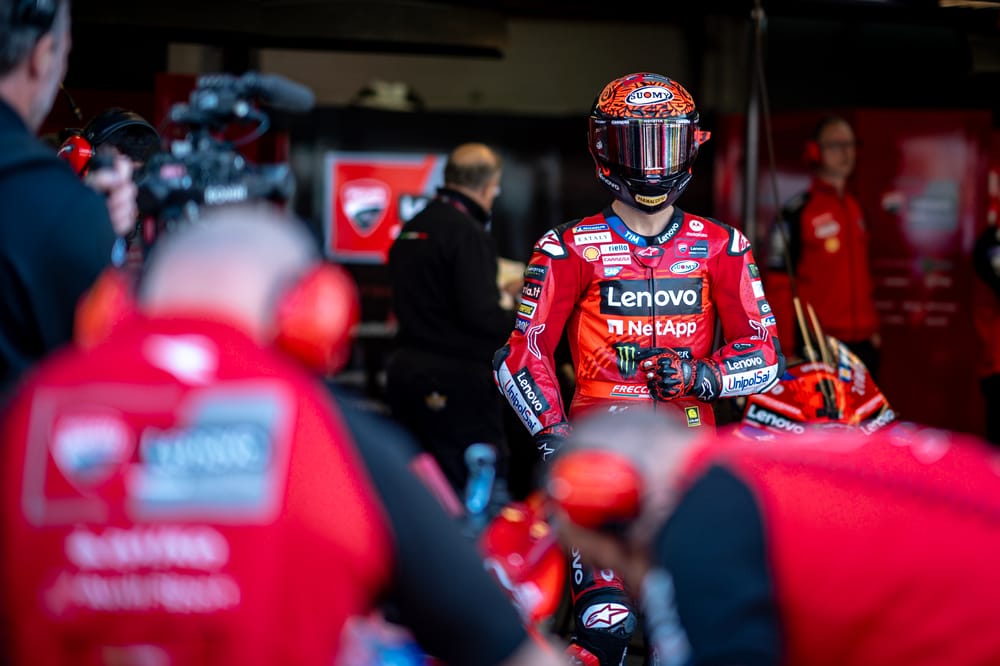Somewhere between Enea Bastianini's on-track protest at his cascading penalties at Barcelona and his Ducati team-mate Pecco Bagnaia's incandescence over being penalised for impeding at Mugello a week later, the criticism of MotoGP stewarding jumped the shark.
The FIM stewards panel led by Freddie Spencer, premier-class champion in 1982 and 1985, does not have a high approval rating among the MotoGP grid.
Riders have been openly rebellious over perceived inconsistencies and what some of them see as an overly informal approach to decision-making. Some of them see it as not worth their time to weigh in on stewards' rulings because they see them more like acts of ancient gods, entities beyond our comprehension to whom all you can do is pray in hope of a plentiful harvest. Others take a similar stance because they feel it's all been said before.
And truthfully, even at Mugello last weekend there was a real head-scratcher of a decision in Miguel Oliveira avoiding sanction for taking Fabio Quartararo down with him from the sprint - a decision that drew wordy but righteous irritation from the Yamaha rider.
💥 A double clear-out in the #TissotSprint 💥 @FabioQ20 and @_moliveira88 found themselves tangled up in a collision going into Scarperia ⚠️#ItalianGP 🇮🇹 pic.twitter.com/Ctg00iL2zT
— MotoGP™🏁 (@MotoGP) June 1, 2024
But the cause is being co-opted.
If Bastianini's Barcelona defiance was at least understandable from a logical standpoint - he did have a case to argue he had been forced off track - if not particularly defensible in terms of the form it took, Mugello featured two more cases of aggrieved parties going over the line between 'valid questioning of the stewards' and 'just objecting to every penalty your side receives'.
The Bagnaia case
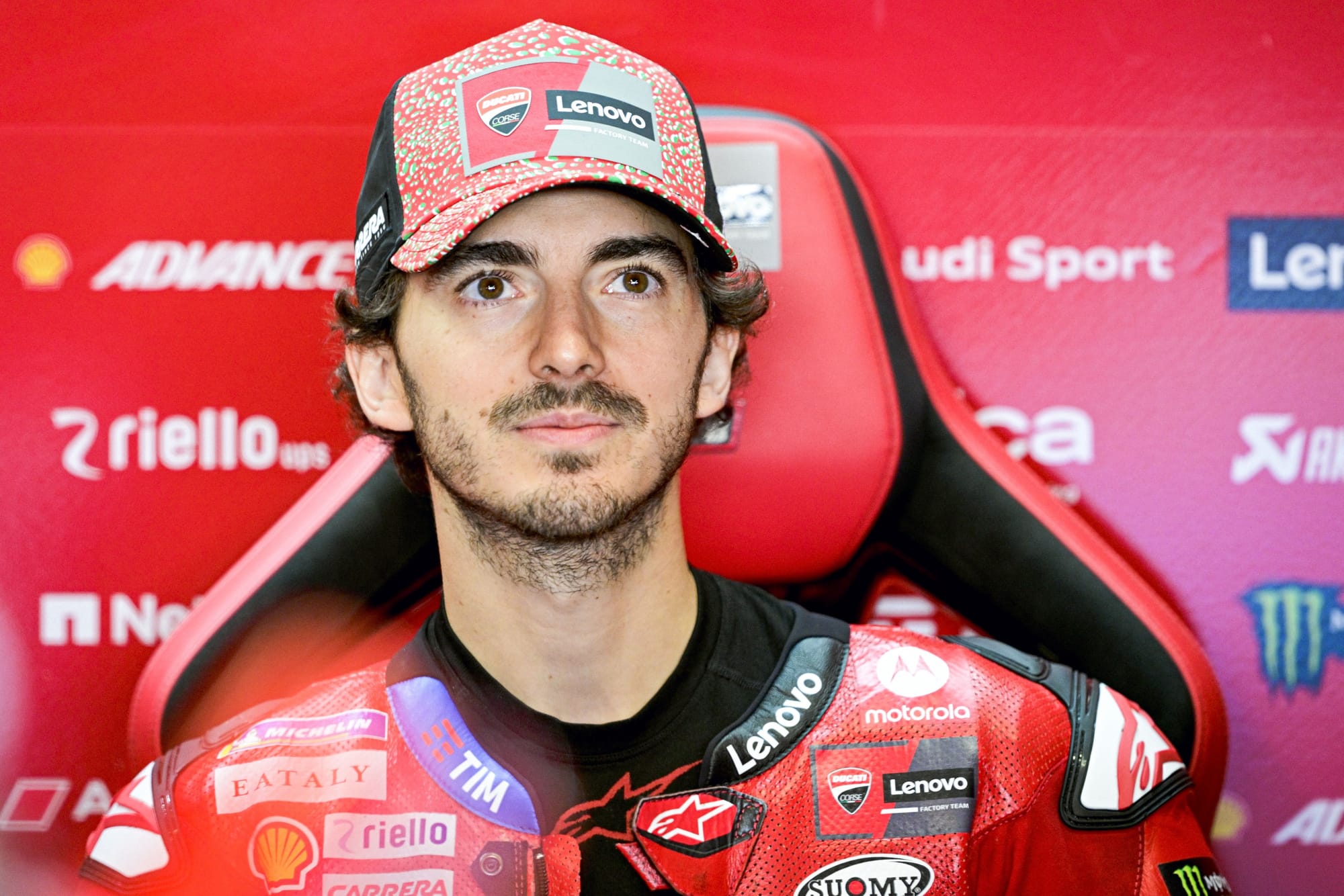
The first example of that was the three-place grid drop Bagnaia received for the impact the stewards felt he'd had on a flying lap of Alex Marquez's in the closing minutes of Friday practice.
Marquez aborted the lap and spent a good few seconds giving Bagnaia a piece of his mind afterwards, which led to Bagnaia derisively calling him a "showman".
Ultimately, the showman did get later himself into that crucial top 10 to guarantee a Q2 spot - although that is an irrelevance, given the aborted effort was still a valid push lap during a qualifying-like session, which is not something you're allowed to compromise as a rival regardless of its actual quality.
👀 @alexmarquez73 and @PeccoBagnaia almost collide in Practice! 🤯
— MotoGP™🏁 (@MotoGP) May 31, 2024
The incident is being investigated by the Stewards that will make a decision soon but as you can see the Ducati riders have completely different opinions on what happened 🔎#ItalianGP 🇮🇹 pic.twitter.com/bPtrX8wBGz
Ducati appealed the penalty but said it accepted the decision once that failed. Bagnaia, though, certainly didn't sound accepting.
"I'm still frustrated because I think it's ridiculous," he said after his sprint win. "We demonstrated clearly what happened, and they just decided to issue the penalty when I was speaking with them. When I was speaking, trying to help them understand with the telemetry data, what was happening, the announcement of the penalty was out.
"This is s**t. This is s**t. And not anyone is happy. We have no consistency in terms of penalties.
"In Portimao I crashed with Marc [Marquez], we both crashed. They said to me: 'If you didn't crash, you were getting a long-lap'. But today what happened with [Jorge] Martin and [Enea] Bastianini. Was it the same dynamic, no? No penalty.
"Or Oliveira/Quartararo. Or yesterday Oliveira/Martin. We have no consistency, and like this you are starting to set a precedent that next time, if someone will ruin a bit my lap, I will start to do some show to try to get them a penalty. It's the only way possible. But not anyone is happy."
A dream start followed by a premature end to @Bestia23's #TissotSprint on home soil 💔
— MotoGP™🏁 (@MotoGP) June 1, 2024
The Italian crashed out after a contact with @88jorgemartin 💥#ItalianGP 🇮🇹 pic.twitter.com/3Y1xelDGwI
Two different things are being conflated here - if Bagnaia's claim about the stewards' assessment of his crash with Marc Marquez at Portimao is accurate, it is a valid concern, given that the corner dynamics between that and the Jorge Martin/Enea Bastianini incident were similar.
HIGH HIGH DRAMA! 💥@marcmarquez93 and @PeccoBagnaia make contact and they're both on the ground! 😱#PortugueseGP 🇵🇹 pic.twitter.com/CzHJM7Jfx9
— MotoGP™🏁 (@MotoGP) March 24, 2024
Although, in that same vein, "similar" does not mean "identical", as there is a marked difference in both the initial lunge that created the circumstances for the collision and the profile of the corner. It points to a pervasive suggestion in current MotoGP that similar incidents have to always yield similar verdicts, which is practically unfeasible.
But the relevant case here is Oliveira baulking a Martin lap in that same session.
Getting frustrated here 😤@88jorgemartin is definitely not happy with @_moliveira88 💢#ItalianGP 🇮🇹 pic.twitter.com/EKncFAsuEe
— MotoGP™🏁 (@MotoGP) May 31, 2024
Oliveira stayed on the racing line throughout, leading to an animated reaction from Martin, and it was never placed under investigation.
But we can at least have a good idea as to the stewards' logic - Oliveira was on an out-lap and winding up his pace and was already at something resembling push lap speed when Martin arrived to him.
The tyres are sensitive, so Oliveira would've had a solid excuse as to why he didn't want to just slow down and speed up again in the second half of his out-lap, even if it's something that potentially warranted a closer look.
Bagnaia was on what by then had become an in-lap. His argument for his innocence was that he had already gone wide by the time Alex Marquez arrived behind him to the Correntaio racing line - but it seems unmistakable from the footage that his presence in the vicinity of the racing line, while at low speed, had a material impact on the younger Marquez's lap. It was, at the very worst, a 50/50 call, hardly worthy of being described as a "clown penalty" the following day.
The Holgado case
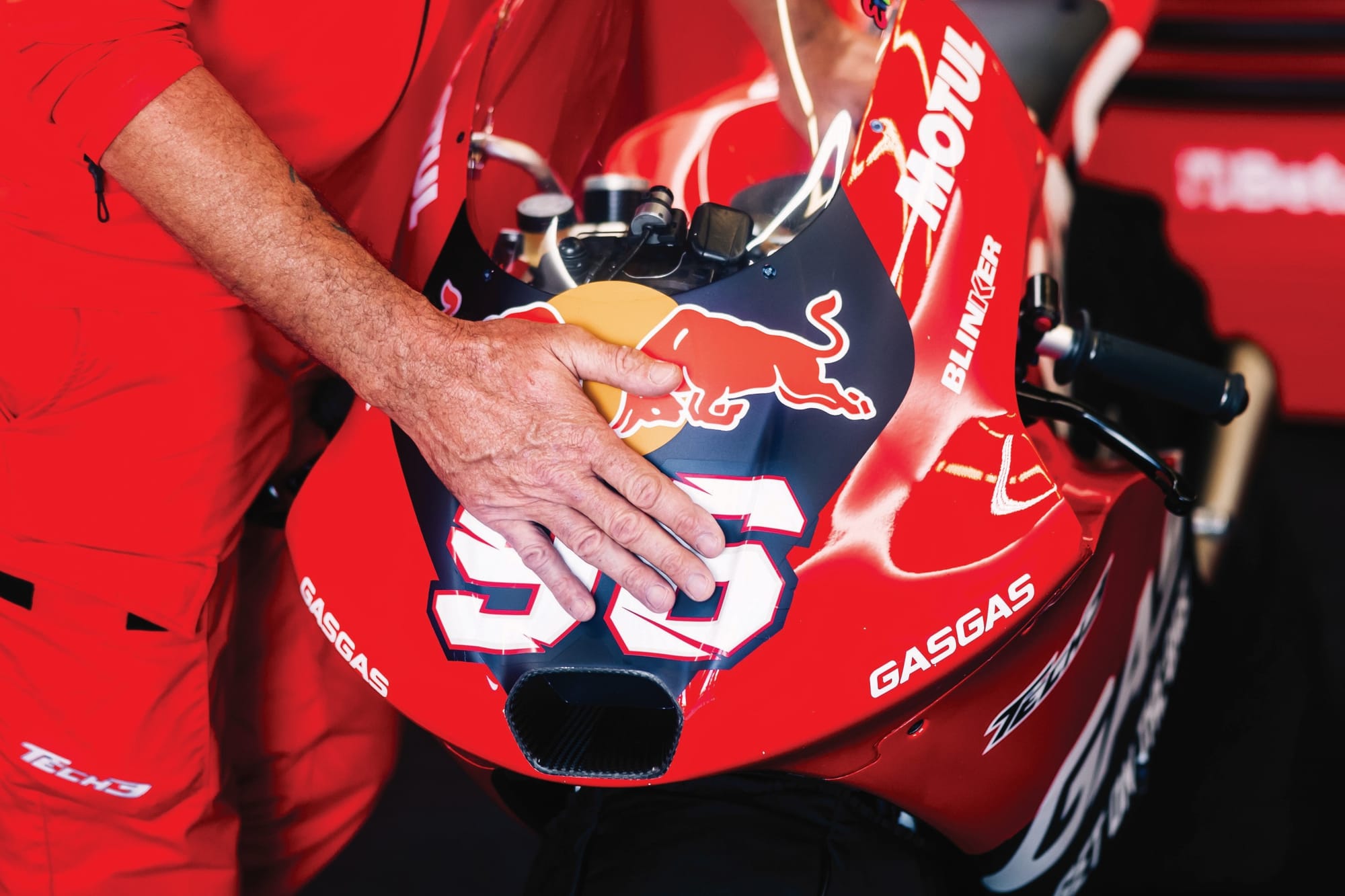
Exhibit B - perhaps the more striking one - is Tech3 team principal Herve Poncharal excoriating the stewards' panel, in the team's official press release no less, for a double long-lap penalty issued against Moto3 title contender Dani Holgado in the category's Mugello race.
The penalty came as a consequence of an incident that took Jose Antonio Rueda and Stefano Nepa off their bikes at the race restart (following a red flag for Xabi Zurutuza's crash and injury). It contributed to Holgado finishing down in 14th, while main championship rival David Alonso won the race.
"At the restart, Dani took off well, and did nothing wrong in Turn 1 as he was just squeezed with other riders," said Poncharal of the incident. "Unfortunately another rider [Rueda] touched him, crashed, taking down another one [Nepa].
"We reviewed that incident a few times in slow motion, it was obvious that it was just a race event. We were incredibly shocked when Dani received a double long lap penalty, it ruined his race, and it will have a big impact on his title challenge.
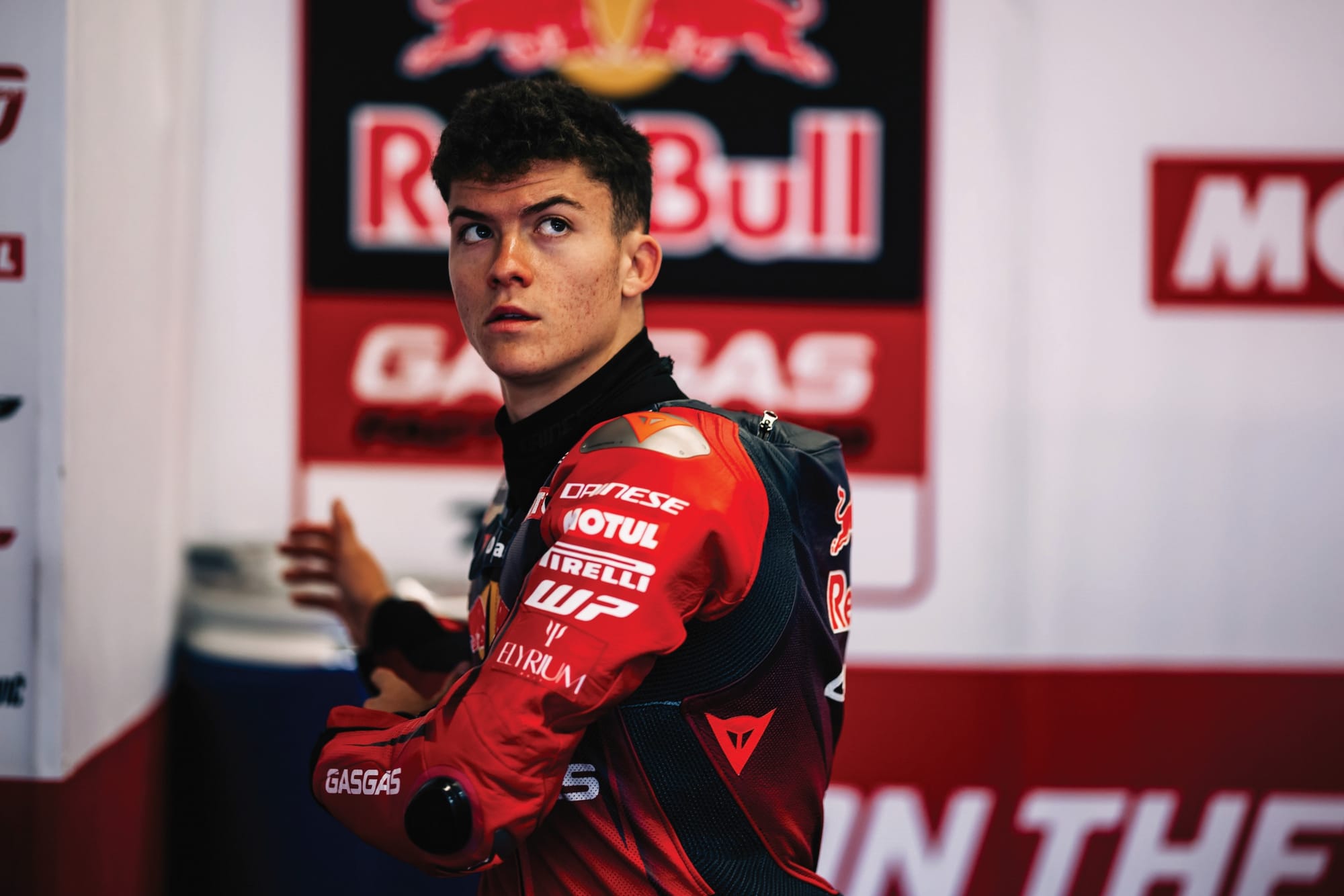
"We went to the race direction [stewards] and could not get any other explanation than a simple 'ambitious/irresponsible riding manoeuvre'. I invite everyone to re-watch this incident, and explain to me how this deserved a double long lap penalty.
"We did not get any other explanation, and I think that when a championship is at stake, it is a true disgrace and a lack of respect coming from the race direction [the stewards].
"I feel really sorry for Daniel Holgado and his crew who are working so hard to fight for the title."
The explanation for Holgado's penalty, though, can be found elsewhere in the Tech3 press release. As it says, Holgado "struggled braking arriving into Turn 1".
🚦#Moto3 race, take 2!🚦
— MotoGP™🏁 (@MotoGP) June 2, 2024
Alonso maintains the lead, Rueda and @stefanonepa82 have gone down! 😱💥#ItalianGP 🇮🇹 pic.twitter.com/tImXnnrip2
It is fairly evident from the broadcast angles but particularly clear from the helicopter footage. Holgado's bike is squirming under him, all out of shape as he slams the brakes into San Donato. He narrowly manages to arrest the bike's momentum to avoid hitting David Munoz up ahead, but as Rueda comes up from behind, Holgado's bike is unmistakably moving laterally relative to the racing line, with it impossible for Rueda to react.
Could Holgado be let off? Sure. Was it better as a single long-lap penalty than a double sanction? Probably. Was it an inexplicable miscarriage of justice? No.
A matter of "respect"
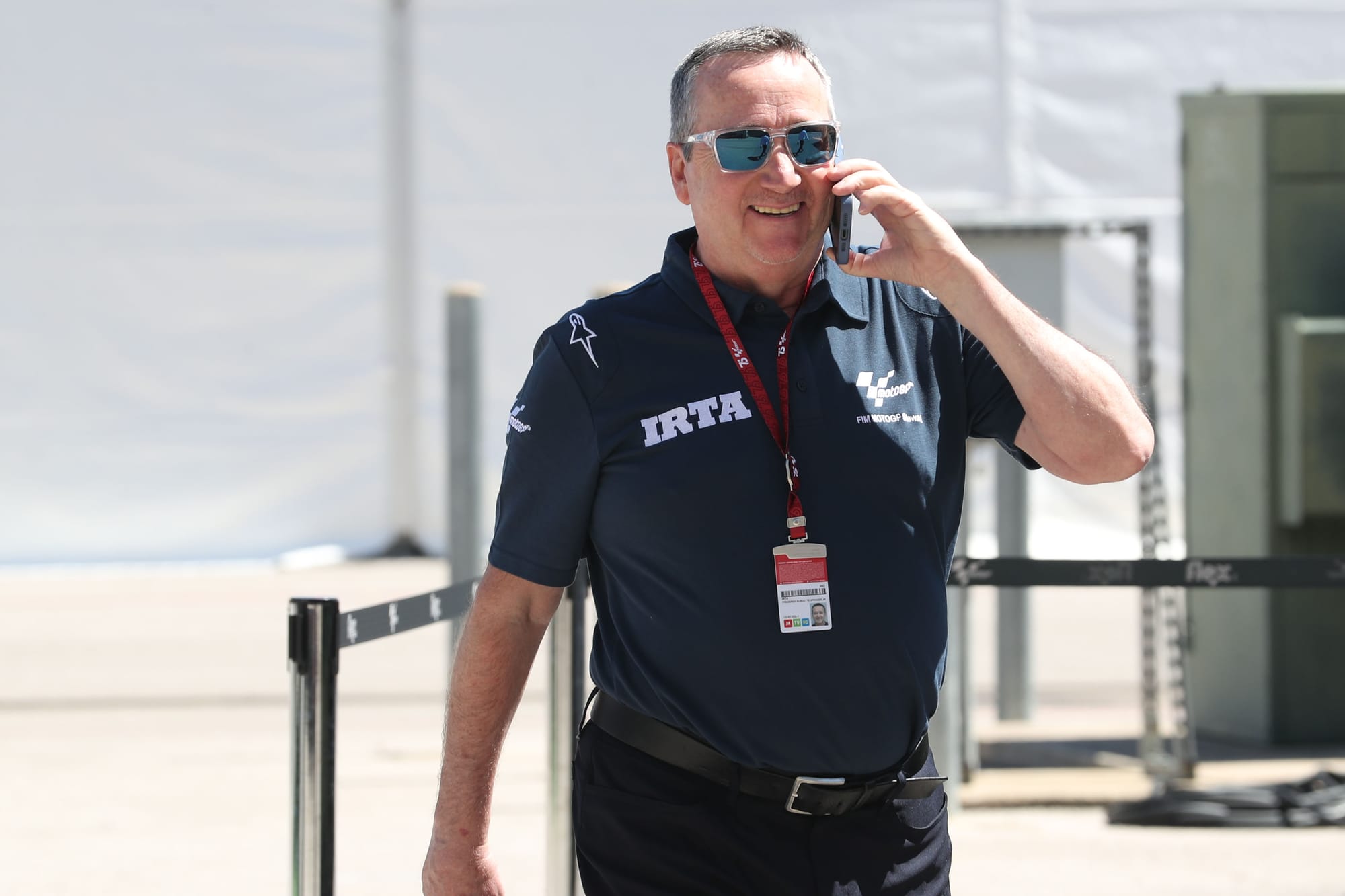
Two examples in one weekend of the MotoGP stewards' work being called "s**t" and a "true disgrace" over incidents that were at worst 50/50. By itself, that isn't so notable - referees get grief in every sport - but with MotoGP in particular in something of an identity crisis regarding the policing of its incidents, things like these do not help.
After all, why would an outsider take the constant complaints about the stewarding crew led by Spencer (above) seriously if even relatively conventional decisions are met with a barrage of rage? Why would the powers that be contemplate changes when there's an excuse to wave things away as simple competitive angst.
Unsurprisingly, it was perhaps Aleix Espargaro who put it best during the weekend, putting forward his suggestion for how to improve things (while agreeing with the Bagnaia penalty but expressing his disbelief that Oliveira/Martin hadn't gone the same way).
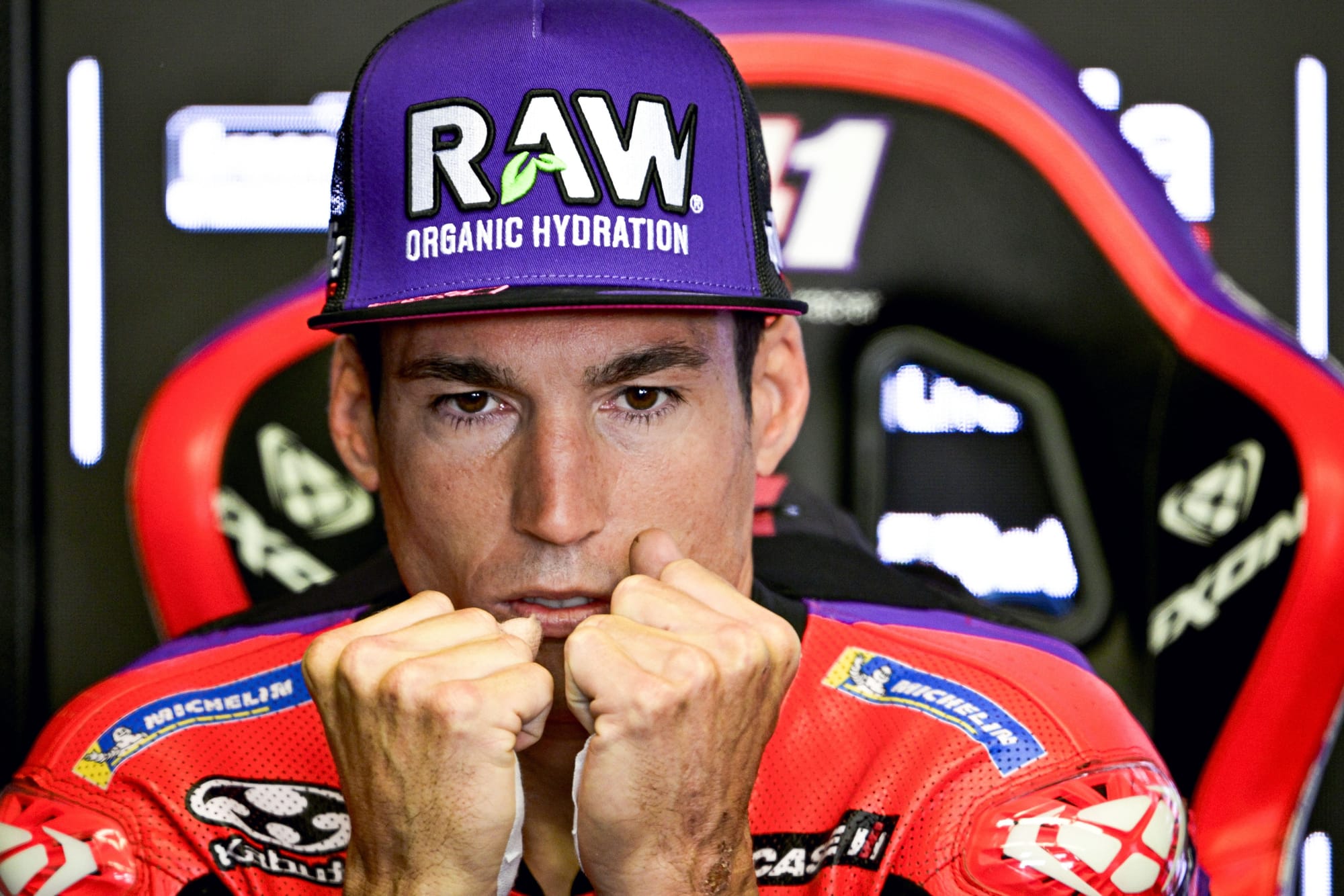
"For me, it's difficult because I don't want to talk bad about them," he said of the stewards. "Because I'm sure that they're doing their best. But they are 20 years removed from today's racing. We need somebody there that has been racing recently.
"We need somebody who's been racing recently - not last year or two years ago, but not 25 years ago. [Somebody] that knows MotoGP, that knows today's riding styles, that knows the tyres, that knows... they need somebody there. Maybe they can keep doing their jobs, but they need another person there who knows more about MotoGP in 2024."
Espargaro made it clear that person wouldn't be him, but he also said: "On the other hand, you need to respect. It's like when they gave me a fine for my mistake to [Franco] Morbidelli [with the slap in Qatar]. I made a big mistake, I had to pay 10,000.
"It's like if I said 'I will not pay'. No, you have to. For me, it was a black flag in Barcelona for Enea [for ignoring penalties].
"If you want that they respect us, you have to respect them as well."
"Respect" doesn't mean keeping things as they are, nor agreeing with every decision or even most of them. But "respect" at least covers not using an overall crisis of legitimacy in the stewarding to push back against every single penalty.


